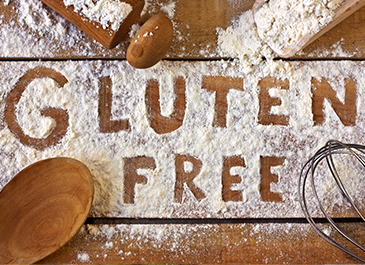Adjusting to gluten-free living takes time and effort: reading labels, learning about gluten-free options and how to cook in a new way can be overwhelming at first. Luckily, just like any lifestyle change, a gluten-free diet becomes second nature over time. Once you’re comfortable on the diet and your intestinal tract has healed, it’s time to go beyond gluten free. You’ve seen the dietitian, read the books, joined the Canadian Celiac Association and have mastered gluten-free living. Now is the time to ask yourself: “Have I mastered healthy eating?”
The ideal gluten-free diet should energize you and prevent chronic disease yet still allow you to really enjoy what you eat. Making a gluten-free lifestyle easier is a vastly improved selection of gluten-free goodies. Gone are the stale, lifeless breads without a whole grain to speak of! We now have a whole gluten-free world available to us—from Belgian waffles to pizzas to peanut sauce.
No matter what your dietary needs, a healthy diet is one that is based on whole foods such as fruits, vegetables, proteins and whole grains. Many of us, not just gluten-free folks, eat too many packaged foods which have plenty of sugar and few nutrients. After all just because something is gluten free doesn’t mean it’s healthy. Luckily, the healthiest foods are also naturally gluten free and choosing fewer packaged foods can even help you save on your grocery bill. Gluten-free specialty items are expensive to manufacture and that cost gets passed on to you!
Eating a whole foods diet provides the nutrients that will help fight inflammation, build strong bones and create a healthy intestinal flora, which are all key concerns in celiac disease. Chronic inflammation is commonplace in North America and is linked to heart disease, cancer and Alzheimer’s disease. Eating fewer processed foods, more whole plant foods and getting plenty of omega 3 fats in your diet will help squelch inflammation in its tracks. Try eating more beans, green vegetables and walnuts—all naturally gluten free! Osteoporosis is a common concern for those with celiac disease. Ensuring you get 1000–1500mg of calcium and 1000IU of vitamin D3 a day helps to keep bones healthy. Recent research also points to high levels of unhealthy intestinal bacteria with the presence of celiac disease. To help keep your gut humming, get plenty of fibre and a daily dose of probiotic yogurt to beat those bugs at their own game.

